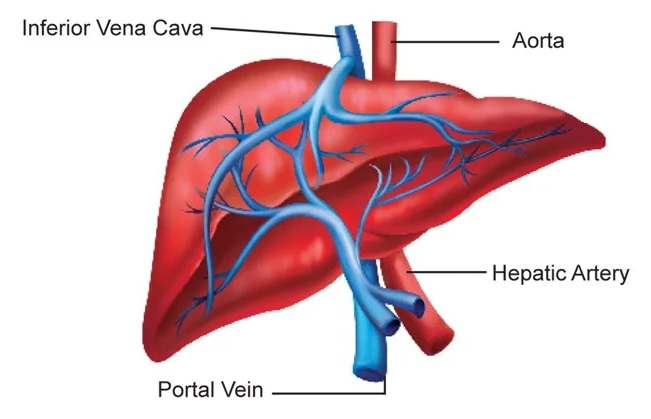Date: July 17, 2024
Why is Hepatic Artery Vital for Liver Transplants
The hepatic artery has an important role in this very delicate procedure, whereby it ensures this newly transplanted organ is getting a sufficient blood supply for optimal functionality. The role of the hepatic artery in liver transplants should indeed be known to all medical personnel, patients, and all those interested in organ transplantations and their intricacies.
The Hepatic Artery: a Lifeline to the Liver
One major organ responsible for a wide array of metabolic functions is the liver. Blood supply to this organ is received from two major sources: portal veins and hepatic arteries. With the former contributing about 75% to the total blood supply to the organ, the latter constitutes the remaining 25% in pure oxygen-laden blood, fundamentally necessary for survival and functionality. In organ transplant matters, this hepatic artery assumes an even greater role.

In a liver transplant, the correct linking of the hepatic artery and its functionality takes precedence over all other aspects. Defects in the arterial blood supply can lead to severe complications, including graft failure. A successful liver transplant is thus highly dependent on the accurate reconnection of the hepatic artery.
Restitution of Blood Flow Done Properly
The hepatic arteries in liver transplants ensure adequate blood supply to the transplanted organ. These surgeons, therefore, use part of the donor’s hepatic artery and very astutely join it with the recipient’s corresponding artery, ensuring that the latter has a very smooth flow of oxygenated blood. This step is important because any other form of interruption or inadequacy in this blood inflow may cause ischemia-death of the liver tissue due to insufficient oxygen, which eventually causes cell death and might lead to graft failure.
Some organ transplant foundations in India and other parts of the world are advocating for advanced imaging techniques, such as Doppler ultrasound, after the surgery for monitoring blood flow through the hepatic artery. Such ways can facilitate the early detection of complications and enable timely interventions to minimize its risk of occurrence.
Learn more about Transplant Organizations in India: Connecting Patients with Donors.
Case Study: The Importance of the Hepatic Artery
A patient required a liver donor in Mumbai and successfully received one. After the surgery, doctors continued to monitor the hepatic artery of the patient using Doppler ultrasound. The Doppler ultrasound examination detected the hepatic artery narrowing, which could have resulted in serious complications. Prompt intervention, aided by an organ donation NGO in Mumbai, ensured that the damaged part of the patient’s artery was repaired by restorating its normal blood flow and thus saved the transplanted liver.
The Broader Context of Organ Transplants
The hepatic artery and its contribution to liver transplants are simply part of organ transplantation’s larger, complex aspect. Organisations like Transplant India play a crucial role in this scenario. They provide financial assistance for liver transplant patients in India so that people do not let economic restraints get in the way of lifesaving procedures. By raising public awareness and educating the masses, Transplant India facilitates organ donation by motivating people to become donors.
For example, Transplant India works with various stakeholders to increase the number of living donors who donate their organs, hence increasing the pool of organs available for transplantation. Their work in crowdfunding for organ transplants in India and rendering financial help to kidney transplant patients makes a difference in the lives of many.
Conclusion
The hepatic artery in liver transplantation cannot be underestimated. Making sure that blood circulates properly and that the liver works right, it is an essential component to the success of such complex operations. In this journey, organisations like Transplant India become an essential factor by acting to provide financial help, generate awareness, and engage with stakeholders to come up and make organ donations, as well as support patients in need.
It remains steadfast in continuing to provide financial help to poor patients wanting organ transplants, increase public awareness through education and media for organ donation, and other stakeholders in this field. You help save lives and build health equity by giving wings to the cause of Transplant India.
Recommended Read: How to secure funding for Liver Transplant